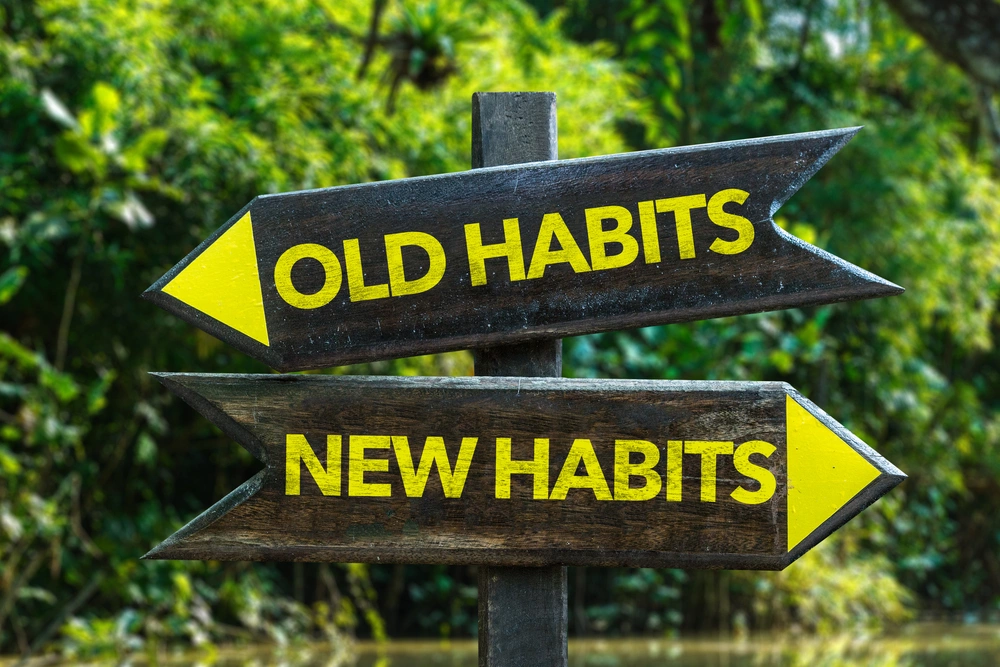Recovery can be a tough journey, and for women, it often comes with its own unique challenges. Societal expectations, roles, and biological factors weave into this complex fabric, sometimes making the path seem even more difficult.
It’s not up for debate that women in recovery face a distinct set of hurdles they must overcome. Recognizing and discussing these gender-specific problems is a step toward creating a more supportive and effective recovery environment for everyone. It allows for the development of strategies and support systems that resonate more deeply with women’s experiences, making the journey to sobriety less daunting and more hopeful.
Talking about the issues women face creates a space where they are seen, heard, and understood. By empowering women to overcome the barriers in their path, we can support them in their pursuit of a life free from addiction. In doing this, we create a recovery process that celebrates women’s strength, resilience, and capability to triumph over adversity.

Do Addiction and Active Recovery Look Different for Women?
Women’s experiences with addiction and recovery are significantly influenced by various biological and societal factors. Different substances pose distinct challenges for women, such as:
- Women often initiate substance use with smaller amounts but escalate to addiction more quickly.[1]
- Women are more likely to die from overdose during the first few years of intravenous opioid use.[2]
- When it comes to stimulants like methamphetamine, women face elevated rates of depression. They often utilize these substances to control weight, combat exhaustion associated with work and manage the often disproportionate burden of responsibility in domestic life.[3]
- Women are more likely to seek treatment for addiction to central nervous system (CNS) depressants.
These nuanced, substance-specific considerations necessitate a gender-responsive approach to addiction treatment and recovery, ensuring that women receive supportive care attuned to their unique experiences, issues and requirements.
Resources:
[1] https://www.ojp.gov/ncjrs/virtual-library/abstracts/differences-between-male-and-female-drug-users-community-samples
[2] https://bmcpublichealth.biomedcentral.com/articles/10.1186/1471-2458-14-440
[3] https://pubmed.ncbi.nlm.nih.gov/14667423/
What Barriers and Challenges Do Women Face in Long-Term Recovery?
The journey to recovery is far from uniform, and women face a multitude of barriers that can make their paths seem even more arduous. An overarching issue is the societal stigma that uniquely affects women, where judgments and stereotypes often seem harsher, making it more difficult for women to seek and sustain recovery.
For many women, motherhood presents its own set of challenges. Societal expectations around parenting and caregiving can create additional stress and obstacles, and women entering recovery are more likely to have responsibility for children than men, making the balance between recovery and child-rearing responsibilities a delicate one.[4]
Co-occurring disorders also play a significant role in women’s recovery. Women often contend with mental health issues alongside substance use disorders (SUDs) highlighting a need for a more holistic approach to treatment and support.
A history of trauma can also play a part. Traumatic experiences, often unique to women, intersect with their addiction recovery processes, requiring sensitive and trauma-informed care approaches.[5] In addition, personal relationships can also be a source of support or challenge, and the dynamics of relationships – whether familial or romantic – can significantly influence progress.
Moreover, women in recovery often deal with issues related to body image and food, which can intertwine with their substance use disorders, adding another layer of complexity that needs to be considered.
Resources:
[4] https://www.samhsa.gov/sites/default/files/family_treatment_paper508v.pdf
[5] https://www.tandfonline.com/doi/abs/10.1080/02791072.2008.10400665
Should Women Address Anything Specific in Early Recovery?
In the initial stages of recovery, it’s essential to focus on certain considerations to cement the foundations of sobriety. A tailored approach for women in recovery could be:
- Community Building: Establishing a network of supportive relationships is fundamental. We often find solace in shared experiences, fostering a sense of belonging and understanding.
- Tackling Shame and Guilt: Addressing internalized shame and guilt is key – especially as women bear a disproportionate burden compared to men. As one paper put it, “female drug addicts suffer from a bigger, more stressful and destructive stigma than men.”[6] Encouraging open conversations about these feelings can pave the way for healing.
- Managing Relationships: Evaluating and setting boundaries in personal relationships can help ensure they support rather than hinder recovery. When engaging in some form of treatment, the counselor or psychiatrist may be able to help examine these relationships from an impartial standpoint.
- Holistic Self-Care: In active addiction, we can neglect our physical and spiritual well-being. Prioritizing self-care and incorporating practices that nurture mental, emotional, and physical health is essential when working to improve your quality of life.
- Exploring Motherhood: Navigating the complexities of parenthood along with recovery is vital. For those in treatment, the staff at the treatment center can be a fantastic source of support. Additionally, there are local services to draw on for those working on recovery outside of treatment, and you will find many people who have had similar experiences at women-only 12-step meetings.
Resources:
[1] https://www.sciencedirect.com/science/article/pii/S1877042814031930

Are Women Safe in Self Help Groups?
While self help groups aim to be sanctuaries of recovery and support, the issue of safety, is a nuanced discussion. However, the pros far outweigh the cons and creating safe spaces and learning how to keep ourselves safe can be one of the important first steps in changing behavioral patterns.
To enhance your safety, you can:
- Choose Gender-Specific Meetings: Attending women-only meetings to promote a supportive and understanding environment and minimize any risks associated with mixed-gender meetings.
- Work With a Female Sponsor/Mentor/Buddy: They will have a good understanding of the unique challenges that arise during the recovery journey.
- Establish Boundaries: Maintain clear, strong boundaries. Define what interactions are comfortable and what are not.
- Speak Out: If an experience feels unsettling, it’s essential to communicate this to trusted members or consider finding a different group.
- Seek Legal Help: In extreme situations like sexual harassment or assault, do not hesitate to seek legal assistance. Alongside recovery, prioritizing personal safety is the most important thing.
Are Women Diagnosed with Substance Use Disorders as Often as Men?
The trajectory of diagnosing women with substance use disorders has been historically uneven due to early research focusing predominantly on men. This male-centric view in initial studies overshadowed women’s unique struggles and patterns of substance use, delaying the development of gender-responsive diagnostic approaches and treatments.
- Diagnostic Trends: Despite being less frequently diagnosed, women exhibit a quicker progression from substance use to addiction and are more likely to face emergency room visits and fatal overdoses.
- Influence of Biological and Societal Factors: Biological differences, such as hormone production, and societal roles, like caregiving responsibilities, distinctly influence how substances affect women and their access to suitable treatments.[7]
Resources:
[7]https://web.archive.org/web/20150302183122/https://www.health.harvard.edu/newsletter_article/addiction-in-women
Substance-Specific Trends
- Opioids and Stimulants: Women are more susceptible to the addictive qualities of opioids and stimulants, often using these substances to self-medicate for pain or mental distress.
- Alcohol: The trends in alcohol misuse are converging between genders, with women increasingly engaging in high-risk drinking behaviors.[8]
- Barriers to Diagnosis and Treatment Access: Stigma, childcare responsibilities, and limited gender-specific treatment options can impede women’s paths to accurate diagnosis and effective recovery resources.
Resources:
[8] https://www.niaaa.nih.gov/publications/brochures-and-fact-sheets/women-and-alcohol

Are Women Often Misdiagnosed?
The structural elements within the healthcare and recovery systems sometimes overshadow the unique needs and challenges women face in their journey towards recovery.
There is a level of professional blindness when it comes to recognizing addiction problems in women.[9] Professionals are often hesitant in probing women about their consumption patterns of drugs and alcohol, which results in a lower likelihood of women being identified and subsequently referred for addiction treatment.[10]
A biased stereotype about the typical appearance and behavior of a woman struggling with addiction makes this even more complicated.[11] When women do not align with the conventional image of someone battling addiction, there is a likelihood of their struggles going unnoticed or being minimized by certain professionals.
Additionally, a lack of gender-sensitive approaches in addiction assessment further complicates accurate diagnosis – negative expectations or reactions towards women struggling with substance misuse may hinder empathetic and effective professional responses, making it challenging for women to open up and share information necessary for accurate diagnosis and treatment.
Resources:
[9] https://www.tandfonline.com/doi/abs/10.1081/ADA-100101868
[10] https://www.ncbi.nlm.nih.gov/pmc/articles/PMC6470905/
[11] https://www.ncbi.nlm.nih.gov/pmc/articles/PMC3532875/
Do Women Take a Longer Time to Recover from Substance Misuse in a Rehab Center Than Men?
When compared to men, women often face a multitude of unique challenges, such as societal stigma, historical trauma, and substantial caregiving responsibilities, which might impact the duration of their recovery process.
These gender-specific obstacles show the need for an individualized approach to treatment and recovery, recognizing that the journey to sobriety is deeply personal and influenced by a complex interplay of biological, psychological, and social factors.
Implementing gender-responsive approaches in rehab centers is essential, as it ensures that the specific needs of women are met, facilitating an environment that supports a holistic and effective recovery process.[12]
Resources:
[12] https://www.ncbi.nlm.nih.gov/pmc/articles/PMC3025819/
Find Your Path to Recovery at Crossroads Antigua
Embark on your journey to recovery at Crossroads Antigua, where we’re proud of our nurturing and empathetic environment, especially for women. Our team, over 90% of whom are female, brings a wealth of clinical, medical, and therapeutic expertise.
Reach out to our admissions team, and find solace in conversations with our clinical admissions counselors, who are ready to listen, understand, and guide you on your unique path to recovery.
At Crossroads, we champion your privacy and confidentiality. With individual therapy sessions and gender-specific groups, we create spaces where you feel safe and supported. Our therapeutic approach is holistic, offering a variety of healing modalities tailored to women’s needs, such as yoga, massage, meditation, and acupuncture.
Join us at Crossroads Antigua, where our compassionate team and comprehensive, women-focused services await to support you in overcoming addiction and embracing a future filled with hope and healing. Contact us today at 1 (888) 452-0091.

